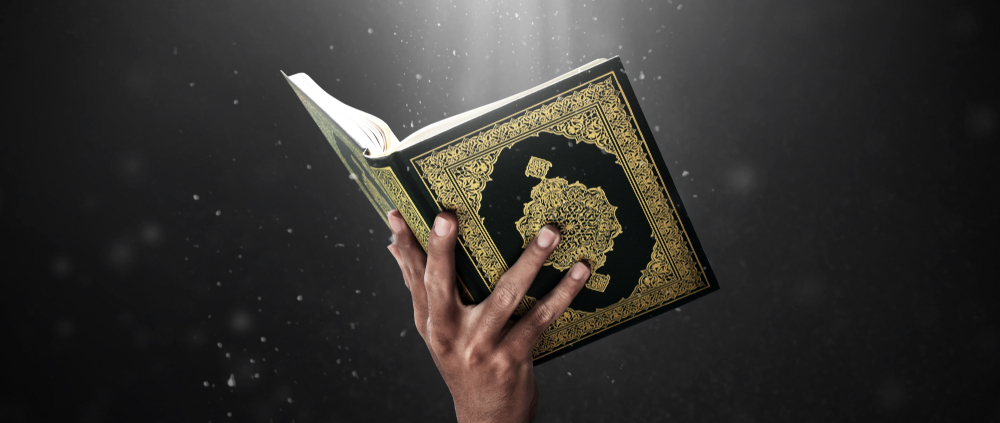Is the Religion Truly Complete, If There Is Good Innovations?
Answered by Shaykh Yusuf Weltch
Question
Does affirming Bid‘a Hasana indicate that the religion was not complete or that the Messenger of Allah (may Allah bless him and give him peace) did not convey his message?
Is there a difference of opinion regarding Bid‘a Hasana?
What is the context of the main Hadith used to affirm Bid’a hasana?
Answer
In the Name of Allah, the Most Merciful and Compassionate.
The presence of praiseworthy innovations (or as my teacher Sh. ‘Umar al-Khatib prefers to say: the derived sunna (السنة المستنبطة)) does not mean that the religion was complete or that the Messenger of Allah (may Allah bless him and give him peace) did not convey his message.
In fact, it conveys the opposite meaning. The Messenger of Allah (may Allah bless him and give him peace) did not only clarify all avenues of good in his time but rather encouraged adopting new practices that are in alignment with the principles he set – he opened the door for all good in the future generations as well.
The opposite is also true; by forbidding blameworthy innovations, he not only forbade all sins in his time, but all sins to come through his prohibition of newly invented blameworthy acts (bid‘a sayyia‘)
Context of the Narration
The context of the narration in question is about charity, however, that does not eliminate the possible of other applications of the narration. This is similar to the Hadith “All actions are based of their intentions” – it is a general Hadith that was mentioned in a specific scenario (i.e., migration – hijra).
Additonally, from the principles of jurisprudence is the principles:
العبرة بعموم اللفظ لا بخصوص السبب
“Legal consideration is given to the general statements not the specific circumstance.” [Ibn ‘Abidin, Radd al-Muhtar]
Praiseworthy Innovation
There is no recognized difference of opinion regarding the existence of praiseworthy innovations. There are clear-cut verses of the Quran, many Prophetic narrations, and the practice of the Companions, both during and after the life of the Prophet (may Allah bless him and give him peace).
Quran
Allah Most High says in the Quran, “(…) do that which is good (…).” [Quran, 22:77]
This verse is general for all that is good and is in alignment with what the Messenger (may Allah bless him and give him peace) would’ve allowed. For example, there were no lawns in the time of the Prophet (may Allah bless him and give him peace), but it would indeed be a praiseworthy practice to mow one’s neighbor’s lawn.
If one organized a youth group in the Masjid that sought out elderly people who could not cut their own lawns and did it for them – this is a new practice non-existent at the Prophet’s time but it falls under the above verse.
Prophetic Narrations (Hadith)
The Messenger of Allah (may Allah bless him and give him peace) said, “Whoever initiates something in this religion of ours that is not from it – it is rejected.” [Bukhari; Muslim]
This narration implies that if someone initiates something that is from the religion (i.e., in line with it) – it is not rejected.
The Companion’s Practices
After the passing of the Prophet (may Allah bless him and give him peace), the Companions (Allah be pleased with them) initiated many new things that were not there at the time of the Prophet (may Allah bless him and give him peace).
They even initiated things during his life that they did not learn from him which he not only allowed but adopted into his own practice.
Below is a list for the sake of brevity:
- The compilation of the Quranic codices (Mushaf).
- The addition of a 2nd call to prayer during Jumu’a.
- The addition of al-Salat khayrun mina-l nawm (prayer is better than sleep) during the call to Fajr prayer.
- The addition of lamps in the Prophet’s Masjid.
- The addition of Hamdan kathiran tayyiban mubarakan fihi to the supplication after raising from the bowing.
- The gathering of the people behind one Imam to pray 20 units of Tarawih
- Etc…
There are countless more practices of the Companions. Furthermore, there are many newly invented acts that have become accepted by Muslims worldwide, such as:
- Islamic Universities.
- Diacritical marks (vowels) and dots in the Quran.
- The codification of sciences like theology (‘Aqida), jurisprudence (Fiqh), Quranic articulation (Tajwid),
- Etc… [Khattar, al-Mawsu’a al-Yusufiyya]
Summary
All of the above brought great benefits to the Muslims throughout the years. The Muslims were able to achieve such great good due to the general encouragement for good acts in the Quran and explicit permission from the Prophet (may Allah bless him and give him peace) to initiate new actions that do not go against the Prophetic guidance.
None of the above examples go against any of the Quranic or Prophetic commands. In fact, many of these actions facilitated the fulfillment of said commands.
Course recommendation: Understanding Sunna and Bid‘a: Tradition and Innovation in Islam
Hope this helps
Allah knows best
[Shaykh] Yusuf Weltch
Checked and Approved by Shaykh Faraz Rabbani
Shaykh Yusuf Weltch teaches Arabic, Islamic law, and spirituality. After accepting Islam in 2008, he completed four years at the Darul Uloom Seminary in New York, where he studied Arabic and the traditional sciences.
He then traveled to Tarim, Yemen, where he studied for three years in Dar al-Mustafa under some of the most outstanding scholars of our time, including Habib Umar Bin Hafiz, Habib Kadhim al-Saqqaf, and Shaykh Umar al-Khatib.
In Tarim, Shaykh Yusuf completed the memorization of the Quran and studied beliefs, legal methodology, hadith methodology, Quranic exegesis, Islamic history, and several texts on spirituality. He joined the SeekersGuidance faculty in the summer of 2019.
